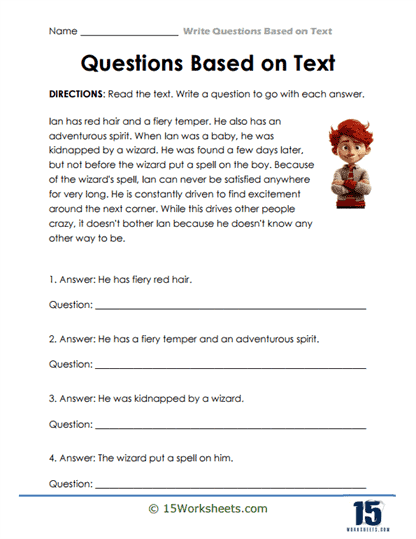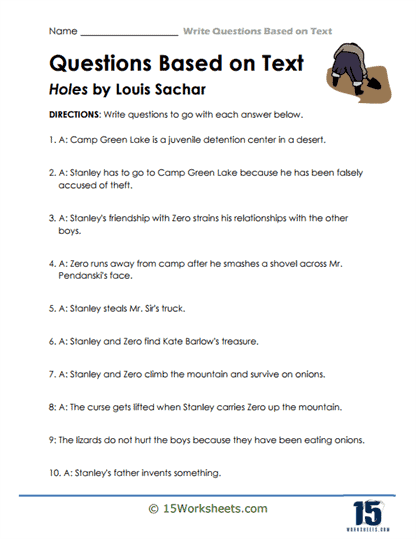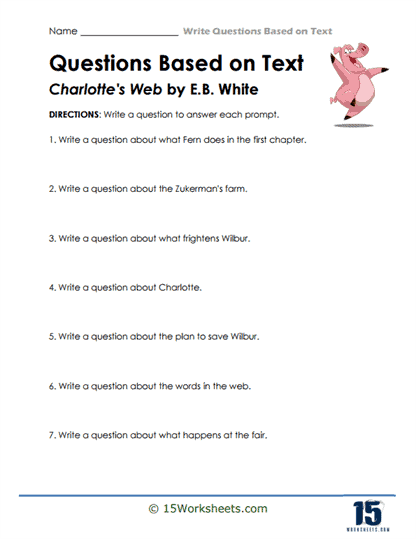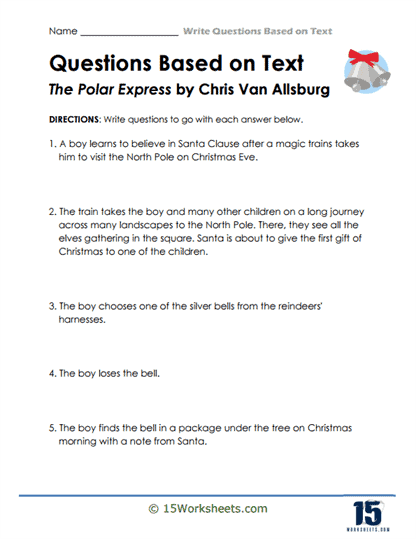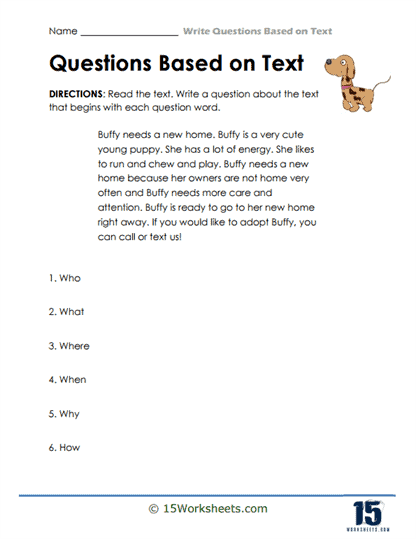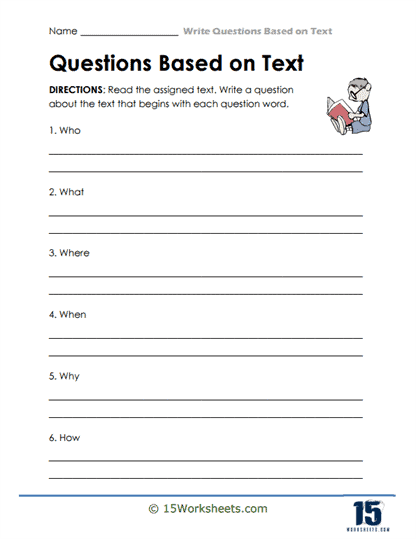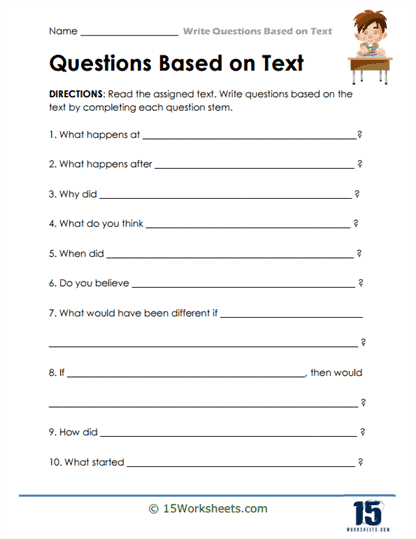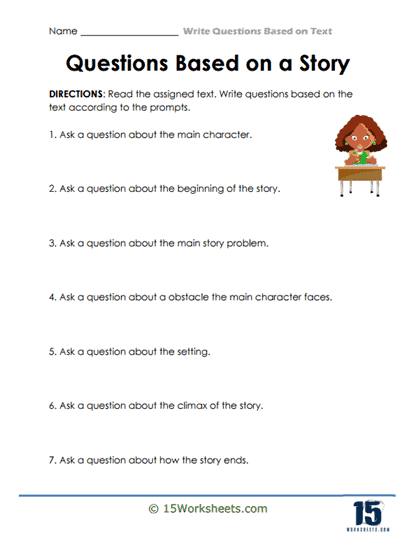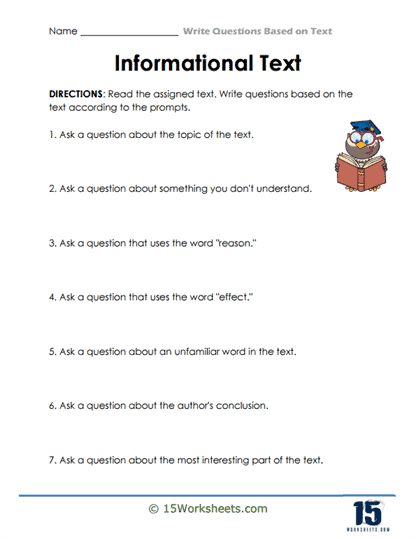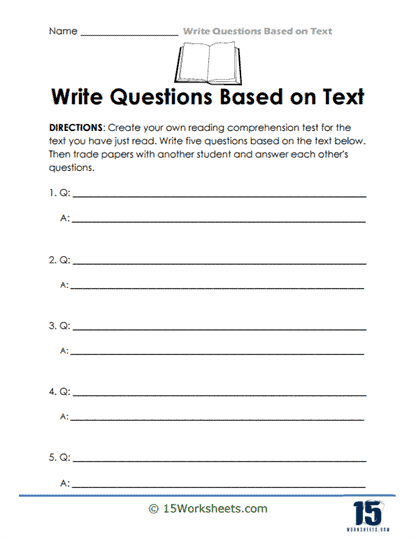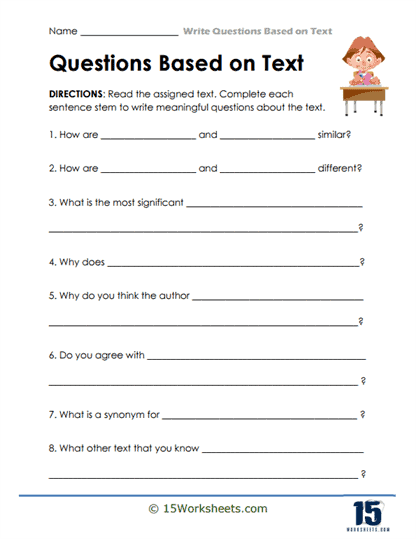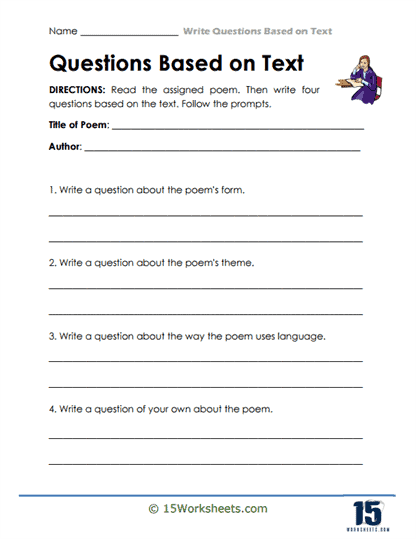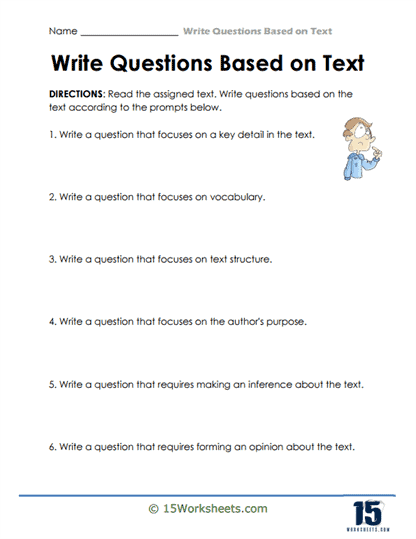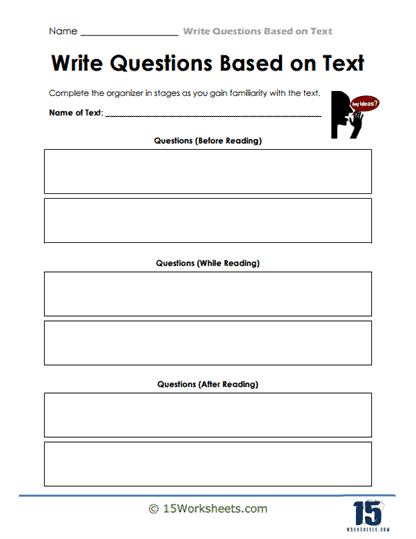Write Questions Worksheets
About These 15 Worksheets
These worksheets are engaging reading activities that help students develop their critical thinking skills, enhance reading comprehension, and improve their ability to formulate questions. As the name suggests, in these exercises, you’re encouraged to write questions based on a given text or context. This can include questions about a story you’ve just read, a science concept you’ve learned, a historical event, or even about an image or a graph.
Think about it like you’re a reporter or a detective, trying to dig deeper and discover new things. Your questions are your tools to uncovering more information. These worksheets offer a unique opportunity for your child to actively engage with learning materials, rather than passively absorb information. By formulating their own questions, they take on a more proactive role in their learning process and develop skills like critical thinking, analysis, and curiosity.
Types of Exercises on These Worksheets
About a Story – After reading a story, students could be asked to write questions about it. They could ask about the characters’ motivations, the setting, the plot, or the theme. This not only tests their understanding of the story but also encourages them to think more deeply about it.
On a Topic – Students might be given a topic—like ‘dinosaurs’ or ‘rainforests’—and asked to write questions about it. This exercise can encourage them to think about what they already know about the topic and what they’re curious to learn more about.
From a Picture – Students could be shown a picture and asked to write questions based on it. This can be a fun and creative task that helps develop their observation skills.
From Data – For older students, they might be shown a graph, a chart, or some other kind of data, and asked to write questions about it. This can help them learn to interpret data and think critically about it.
Inferential Questions – Students could be asked to write questions that require inference, asking them to read between the lines and make assumptions or predictions based on the information provided.
Relevant vs. Irrelevant Questions – A fun task might be to ask students to write both relevant and irrelevant questions about a passage or a topic, helping them understand the difference.
While working on these exercises, it’s important to remember that there are no ‘silly’ questions. Every question, big or small, can lead to new discoveries and understanding. And not every question needs to have an answer immediately; some questions might require research, further reading, or just time to ponder.
Parents, as you work through these worksheets with your child, remember to encourage open-mindedness and curiosity. The ability to ask good questions is a valuable skill that can greatly enhance their learning, not just in school, but throughout their lives.
How to Write a Question About What We Read
When you read something and you want to write a question about it, you first need to understand what you’ve read. Let’s pretend we’ve just read a short story about a girl who went to the zoo and saw a tiger for the first time.
Step 1) Identify Key Points – These are the main ideas or events in what you’ve read. In our story, the key points might be: the girl, the trip to the zoo, and seeing a tiger.
Step 2) Think about What You’re Curious About – What do you want to know more about? Maybe you want to know why the girl was at the zoo, or what the tiger looked like, or how the girl felt when she saw the tiger.
Step 3) Turn Your Curiosity into a Question – Take what you want to know and turn it into a question. Here are some examples:
Why did the girl go to the zoo?
What did the tiger look like that the girl saw at the zoo?
How did the girl feel when she saw the tiger?
Remember, a good question often starts with “who,” “what,” “where,” “when,” “why,” or “how.” These words help you ask about important information.
Step 4) Make Sure Your Question Makes Sense – Read your question out loud to make sure it sounds right. Ask yourself if the question is about the story and if the answer is something you really want to know.

